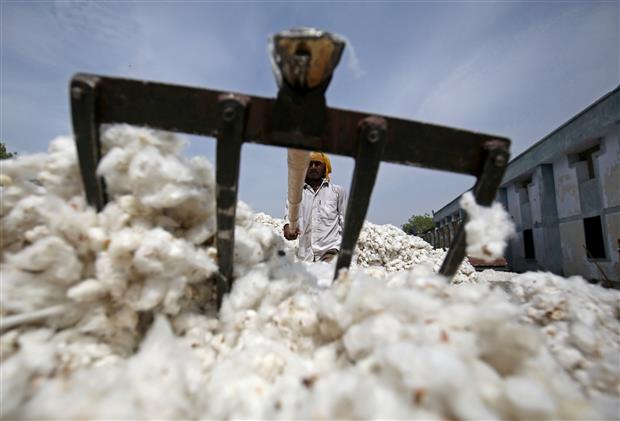Pakistan textile sector disappointed with Imran Khan govt’s u-turn on Indian cotton imports

Advertisement
The Pakistan government’s decision to not allow the import of Indian cotton has turned into a big disappointment for the country’s textile sector with many saying that buying cotton from the neighbouring country is the need of the hour to avert big loss to textile exports.
Pakistan Apparel Forum chairman Jawed Bilwani on Thursday said the rejection by the country’s cabinet of the Economic Coordination Committee’s (ECC) proposal would convey a negative message to foreign buyers as the cotton yarn was not available in the country.
The textile export sector has been continuously demanding duty-free import of cotton yarn from all over the world, including India, to avert any big loss to textile exports.
On Wednesday, Pakistan’s newly-appointed finance minister Hammad Azhar announced that the government had decided to allow the import of sugar, cotton and yarn from India.
Azhar said there was high demand of cotton because Pakistan’s textiles exports had increased but last year’s cotton crop was not good. “The price of the commodity in India is lower than what it is in Pakistan. The import of cotton and yarn through the Wagah border will help meet domestic requirements at reasonable rates,” Azhar said, adding that import of cotton from India for small industries would take place until June.
According to Pakistan’s media reports, the decision to turn down the proposal was taken in a cabinet meeting chaired by Prime Minister Imran Khan in Islamabad, hours after Minister for Human Rights Shireen Mazari said the cabinet will review the ECC’s decisions related to trade with India.
Bilwani claimed that prices of cotton yarn had increased after the federal cabinet’s decision. “The government must ensure the availability of cotton yarn in the country if it did not want to allow its import from India,” he added.
He feared massive textile exports decline if the import of cotton yarn from the neighbouring country was not allowed.
“In the current year, the country faced a 40 per cent plunge in cotton production and if it was compared with 15 million bales in 2014-2015, then the drop was 50 per cent this year,” he said.
Advertisement






